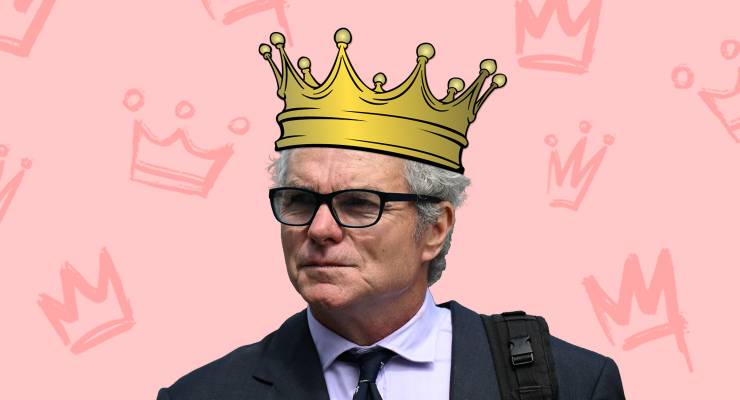
David McBride
Think of what we know, thanks to David McBride. McBride, a long-time military lawyer, leaked the information that would lead to the 2017 ABC series “The Afghan Files“, with its unprecedented insight into Australia’s military conduct overseas, including the alleged murder of unarmed men and children. This was ultimately vindicated by the Brereton report, a generational look into ritualised and performative sadism, alleging the murder of at least 39 people in our name, and with our money.
By the time the report was out in November 2020, McBride had already been charged for the leak. In March this year, the Australian Federal Police (AFP) and the Office of the Special Investigator (OSI) — which had been set up after Brereton — charged SAS veteran Oliver Schulz with a war crime, the first war crime charge in Australian history.
Inadvertently, McBride also revealed the limits of the new Labor government’s commitment to transparency. Having swiftly and rightly brought the prosecution of lawyer Bernard Collaery to a close when they took government, Labor let McBride’s ordeal continue.
And then think of what it has cost him. By the time his trial finally commenced, McBride had been in pre-trial limbo for four years. Once his public interest defence was rejected — trial judge David Mossop and then the ACT Supreme Court both found soldiers have no legal duty to act in the public interest — McBride’s guilty plea was inevitable. He awaits sentencing, which has the potential to match the punishment faced by Schulz: life in prison.
There are complications and controversies around the initial reasoning for his disclosure, none of which take away from the larger point: we know things that we should know, needed to know, because of his actions. Actions he undertook knowing, better than most, what might follow for him.
As Briana Charles put it in these pages, upon McBride’s guilty plea: “McBride’s disclosure gave the public a rare window into the fog of war, with all its hypocrisies and secrecy.”
One could draw a number of very grim conclusions from McBride’s story, but these are conclusions McBride seems to have resisted.
“I don’t see it as a defeat,” McBride said after his plea, his fist raised to the sky. “I see it as the beginning of a better Australia.”
CORRECTION: A previous version of this piece stated McBride’s 2017 disclosures led to the Brereton report. The inquiry into alleged war crimes by Australian special forces was actually initiated before those disclosures, in May 2016.








Like Assange, McBride has shown incredible courage, matched only by the remarkable lack of courage shown by successive governments.
It is especially galling that the current Labor government, that promised so much, has turned out to be just a gutless as the previous one in both of these cases.
Nothing like Assange.
If Assange is such a defender of freedom why did help Putin and only target democracies?
An excellent choice – and one I hope will give him some comfort (and our politicians discomfort) in the coming months
It will be an absolute disgrace to our country if this man sees any jail time.
McBride’s hope that the case is ‘the beginning of a better Australia’ is a little optimistic – given the previous article on the failure of The Voice – but there is no doubt that he has had the courage to lift the carpet and show us the maggoty debris that our leaders have swept under it. I hope he doesn’t rot in jail, but if he gets a long sentence then count me in on the protests.
If anyone deserves a Victoria Cross for courage in the face of an enemy, it is David McBride.